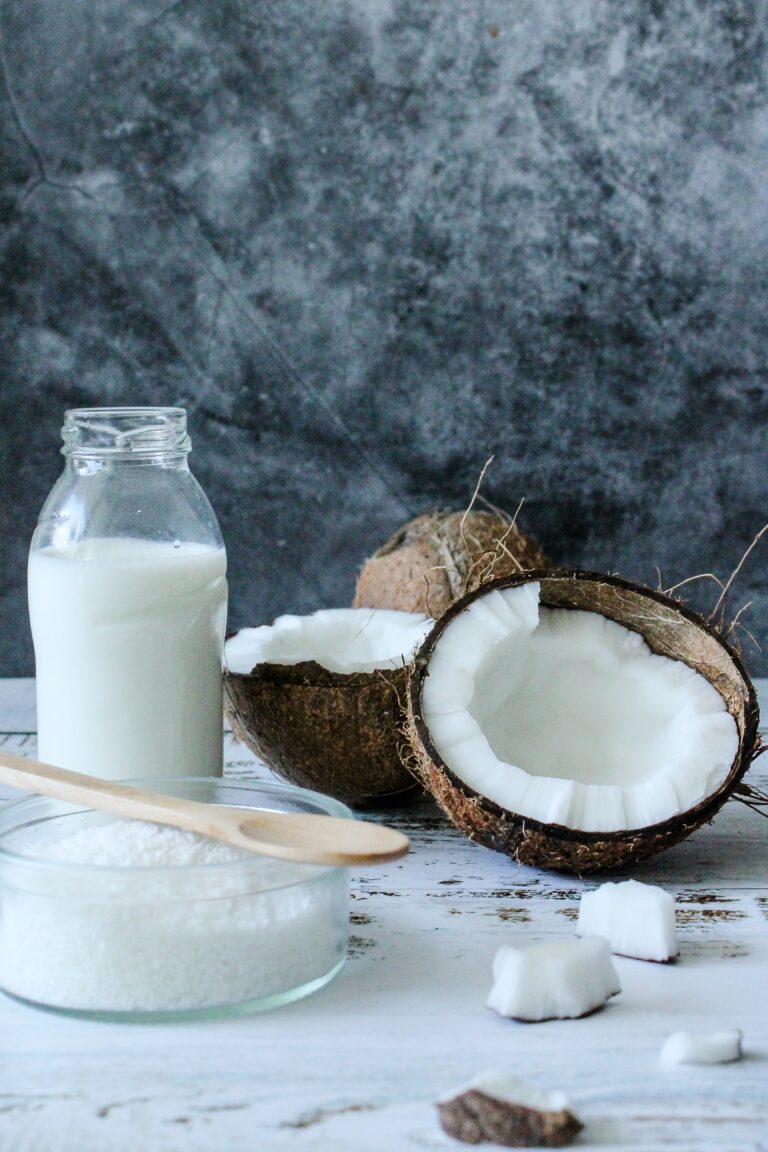

Last updated July 20, 2023
Part Seven of my Superfoods for Fertility Blog Series coming right up! If you missed any of the previous posts, click the links below to get all caught up :).
Today we’re talking all about Fermented Foods. I’m not talkin’ about your jar of Vlasic pickles either. I’m talkin’ real lacto-fermented foods that will do more for you than just improve your fertility health!
Superfoods for Fertility Blog Series : Chia Seeds
Superfoods for Fertility Blog Series : Maca Root
Superfoods for Fertility Blog Series : Egg Yolks
Superfoods for Fertility Blog Series : Wild Caught Fish Seafood
Superfoods for Fertility Blog Series : Bone Broth
Superfoods for Fertility Blog Series : Liver
Lacto-fermentation is an ancient method of food preservation that has been around for thousands of years. Many different cultures around the world have used this technique in some form or another – for food preservation and also for INCREASING the nutritional benefit of various foods.
Have you ever had sauerkraut? Pickles? Kimchi? They are lacto-fermented foods! Lacto-fermented foods are not only “preserved” but are nutrient-dense, enzyme rich and alive with probiotics. Don’t confuse fermented and pickled though! Pickling is a more general term, referring to various ways of preserving foods in an acidic medium (usually vinegar). In the case of various types of supermarket pickles on the shelf, the pickling comes from vinegar. These vegetables, however, are not fermented (even though vinegar itself is the product of fermentation) and hence do not offer the probiotic and enzymatic value of homemade fermented vegetables.
On the other hand, vegetables that are fermented using a starter, salt, and some filtered water, create their own self preserving, acidic liquid that is a by-product of the fermentation process. This lactic acid is incredibly beneficial to digestion when consumed along with the fermented vegetables or even when sipped alone (cabbage juice anyone?). In other words, homemade fermented veggies are both fermented and pickled. Ferments made in this manner are alive and rich in probiotics. In this age of antibiotics we all need whatever extra help we can get in making sure the balance of the flora growing in our intestines is as helpful to our absorption and production of nutrients as possible.
I’ve mentioned this before, but it’s worthy of repeating – a healthy gut is one of the first steps in preparing your body for pregnancy. Everything you consume now will affect the health of your future baby. The baby that will soon be growing in your womb? That baby’s digestive tract will be colonized by the same bacteria as yours! How crazy is that?!
Fermented foods provide beneficial bacteria, enzymes, and lauric acid – all of which promote a happy digestive tract. They promote the growth of health bacteria, but not only in your stomach, but in your vagina too. When you have a balanced pH vaginally, you have optimal cervical mucus which, in turn, is essential to conception. When you’re harboring unhealthy bacteria in your vagina, it can reduce your cervical mucus so much, that your chances are conceiving are dramatically decreased.
Another benefit of promoting optimal vaginal bacteria is to prepare for birth and the optimal development of your baby’s immune system. During birth, as your baby travels down the vaginal canal, she literally “gulps” in the vaginal fluid (and all it’s bacteria!), incorporating the first bacteria to colonize her gut, and therefore her immune system.
Making fermented foods at home, or purchasing the refrigerated varieties at your local health food store is the only way to consume them. These versions are FULL of probiotic bacteria that will aid in increased gut health, immune health and strong digestive function. If you’re up for it, I encourage you to try making your own ferments. Homemade yogurt or kefir from raw milk is super easy, and other lacto-fermented foods aren’t that hard either once you get the hang of it.

Fermented foods aren’t only great for fertility – they are great for your immune system! It’s estimated that roughly 70-80% of your immune system is in your gut, so the healthier your gut, the healthier your immune system, which we know is important for optimal fertility. Autoimmune conditions are a major cause of infertility.
When you consume fermented foods, the bacteria gets to work in balancing your gut bacteria and stomach acids – releasing enzymes to help ease and improve digestions. You know what that means? Less constipation and easier elimination :).
One of the most healthful fermented foods is kefir – an ancient cultured, enzyme-rich food full of friendly microorganisms that balance your “inner ecosystem” and strengthen immunity. Besides kefir, other good fermented foods include natto, kimchee, miso, tempeh, pickles, sauerkraut, and olives.
You have so many options! Sauerkraut, pickles, pickled ginger, pickled cucumbers, unsweetened coconut yogurt, unsweetened coconut kefir (without corn or rice-based thickening agents), kombucha, kimchee, kefir water, pickles fermented with salt, beet kvass, lacto-fermented vegetables and fruits such as fermented beets, carrots, and green papaya are all good places to start. Make sure that you’re buying foods that are lacto-fermented, meaning they’re prepared in the traditional way and not with vinegar. It’s getting easy to find these even in normal grocery stores. Look for local artisan purveyors at your local health foods stores. MMLocal, Zuke and Farmhouse Cultures are all great brands.
I think the best options is to always make your own fermented foods! Start with something easy, like this:

1 can 13.5 oz full fat coconut milk, bpa-free (Organic Native Forest is great)
1 tablespoon Inner-Eco fermented coconut water probiotic kefir OR 1 capsule of any probiotic to use as your starter
A lidded glass jar big enough to hold the contents of the can of coconut
An oven that’s free for up to 24 hours
Step 1: Refrigerate Your Canned Coconut Milk (Optional)
Native Forest is a good brand because they don’t use BPA in the linings of their cans. If you want thicker yogurt, refrigerate the can (don’t shake it up) for at least a few hours so that the cream rises to the top.
Then, just use the cream and not the water at the bottom of the can. If you don’t want to waste the water at the bottom of the can, you can always put it in a smoothie or . . . drink it?
I use the entire can of coconut milk – water and all – because I don’t mind if my yogurt is a little thin. One might even call it “runny”. By the way, the amount of yogurt you get from this recipe is equal to the amount of coconut milk you use. So if you use an entire 13.5-ounce can, you’ll get the whole 13.5 ounces, or about 1¾ cups.
Step 2: Combine Ingredients
Yes, there are only 2 ingredients – yippee! Place the coconut milk, or just the cream if you choose, into a sterilized glass jar with either the tablespoon of Inner-Eco or the contents of the probiotic capsule. If you’re working with the probiotic capsule, just open it up and dump in the powder. Then mix it up with a plastic or metal spoon.
Step 3: Wait!
Put the sealed jar of yogurt in the oven with the light on. DO NOT TURN THE OVEN ON. Just close the oven door and turn on the oven light. Even in the midst of a freezing cold winter in Colorado, the closed oven and the light generate a stable temp of about 105-110°F – perfect conditions for the coconut milk to incubate.
The longer it sits, the more yogurt-y it becomes, so I leave mine in for 24 hours.
If you’re squeamish about leaving things out unrefrigerated, just remember that this is how that grocery store yogurt is actually made – by letting it sit in a warm-ish place. The same goes for buttermilk, kefir, and all other deliciously tangy fermented things.
Probiotics are live microorganisms that are safe to consume. Common examples include lactic acid bacteria and yeast. In addition to promoting a healthy digestive tract, probiotic foods support the growth of “good” bacteria in the vagina, balancing its pH and creating the perfect environment for healthy cervical mucus. This is why adding probiotic foods to your diet is one of the first steps in preparing your body for pregnancy.
Making your own tasty fermented foods is a great way to add more probiotics to your diet when you’re trying to conceive, as well as when you’re actually pregnant. Both yogurt and kefir are easy to make at home, even if you don’t consider yourself much of a “cook.” Other fermented foods that support fertility and a healthy pregnancy include kimchi, miso, sauerkraut, and tempeh.
Kimchi is a great source of probiotics. Like other probiotic foods, it helps create a suitable environment for cervical mucus, which is essential for conceiving. The slippery discharge resembles stretchy egg whites and makes it easier for sperm to reach the uterus, where it can fertilize an egg.
The Fertility Code is the best-kept secret of women who want to take the guesswork out of conceiving, and give themselves every possible chance of getting pregnant successfully.
Bringing together evidence-based information, science-backed protocols and nurturing practices, this course is your one-stop-shop for getting your body, mind and soul prepared for conception.
This essential fertility course is for anyone who is struggling to get pregnant, or thinking about getting pregnant soon. The course covers all the fertility topics: egg quality, ovarian reserve, miscarriage, ovulation, cycle tracking, low progesterone, IVF, prepping for egg retrieval + embryo transfer, thyroid health, toxins, and much more. It covers EVERYTHING you need to know and you can move through the modules at your own pace.
The Fertility Code will give you the tools, protocols, tests, supplements, and more to optimize your fertility health, nourish your body, and give it what it needs to make a baby, and ensure a healthy full-term pregnancy. It has helped hundreds of women get pregnant, and stay pregnant, and it can help you too.
And if you want to get a baseline of your fertility health before getting started, take my quiz! After you complete it, you’ll receive a detailed report from me explaining your results.
If you want more personalized guidance and support, or want to have a more in-depth conversation about your specific concerns, feel free to schedule a 1:1 consultation. I offer 1:1 consultations through the convenience of video conferencing for women and couples with various fertility & hormonal health concerns.
Sarah Jane Sandy is a certified nutrition therapist, and a fertility and women’s health expert. She has helped hundreds of women increase their fertility naturally and go on to have healthy full-term pregnancies. She has been working with women and couples trying to get pregnant for over 15 years and over 90% of the women who work with her get pregnant and have healthy babies. Learn more about her own fertility journey here. To send Sarah a message, complete her Contact Form.

Curious about your fertility health? Take this simple quiz to find out what factors may be harming your fertility, and learn what you can do about it!